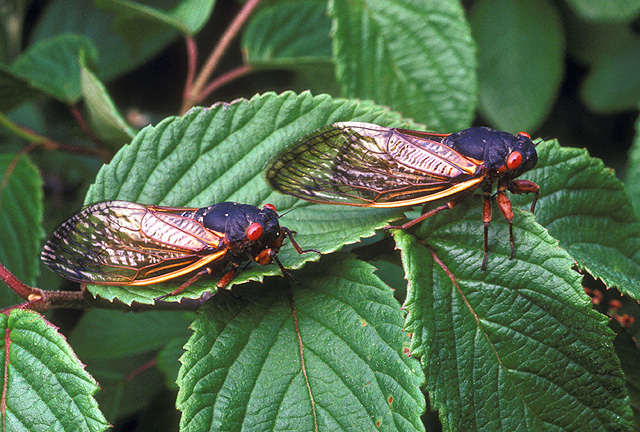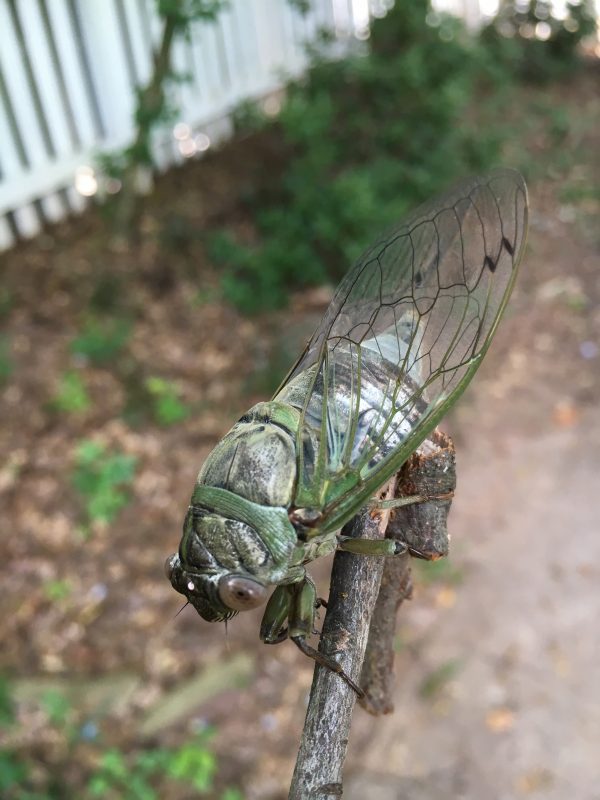The 17-Year Cicadas Will Soon Emerge; A Ga. Professor Wants To Know If You See Them

Pictured here are the periodical cicadas, Magicicada septendecim. They are smaller than annual cicadas and are black with red eyes.
ARS Information Staff
A Georgia biologist is asking for help from the public in studying the gigantic 17-year cicada brood that will start emerging soon up and down the East Coast, including in North Georgia.
While Georgia has plenty of annual cicadas that appear every summer and rattle away from the treetops, Evan Lampert, a biology professor at the University of North Georgia, says the periodical cicadas, the ones that emerge every 13 or 17 years, are something special.
“Really spectacular,” he says. “Hopefully, North Georgia is in for a lot of excitement and a lot of noise.”
Lampert is planning to get in on the excitement of billions of insects emerging from the ground, climbing into the trees, and making an enormous racket.

He and his students hope to compare where the cicadas appear this year to see if their range has changed since 2004. He’s also interested in how densely they appear, which exact species are here in Georgia, and which plants they lay their eggs on.
And to do all that, he wants to hear from people who see them.
“We would love anybody that has them in their yard to let us know,” he says.
There are a couple of ways to tell these periodical cicadas apart from the regular old unspectacular annual ones.
The annual cicadas are big and green or brown, while the periodical cicadas are smaller and black with red eyes.
The other way: “Probably the most obvious sign will be the numbers,” Lampert says.
Put another way, if you’ve got them, you’ll know.
Lampert says people can email him to let him know about periodical cicadas at Evan.Lampert@ung.edu or upload sightings to a cicada mapping smartphone app called Cicada Safari.
The 17-year cicadas are expected in North Georgia, around Ellijay, Dahlonega and Blairsville, and will likely start appearing and making noise in the next few weeks.
These Brood X cicadas emerging this summer likely won’t be in metro Atlanta. But Brood XIX, which is on a 13-year cycle and does appear in Atlanta, is expected to emerge in 2024.








